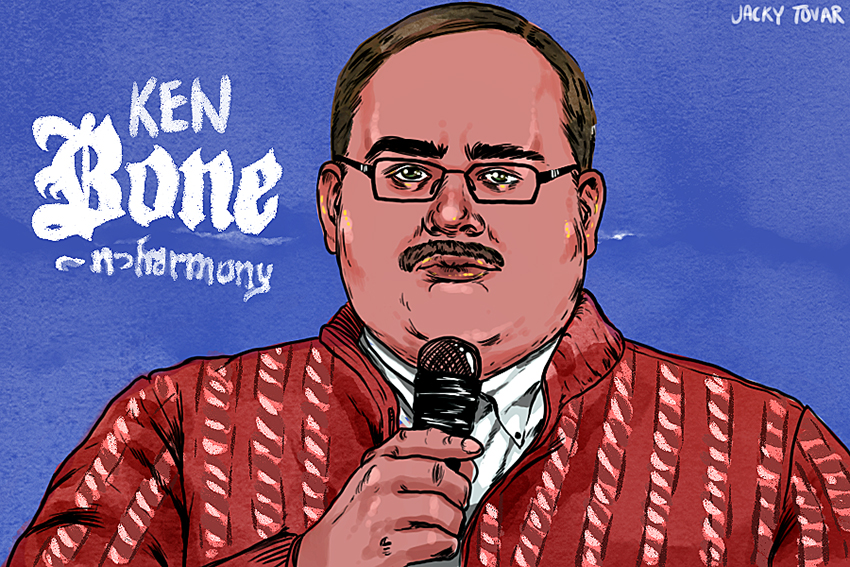Kenneth Bone turned into a meme overnight after interjecting himself into a debate gone awry to ask the presidential candidates about energy policy. Usually, only the politically aware, above-average voter would have watched him ask this question and mindfully ponder over Trump or Clinton’s answer. But because Bone’s atypical demeanor made him the butt of many jokes, more people heard his question. Though not at the level it should be, comedic meme culture can perpetuate political awareness in millennials who would not have paid attention otherwise.
Twitter is the perfect outlet for political propaganda. A virtual forum with 313 million monthly active users, Twitter transmits a constant flow of unfiltered information. Though Twitter is intended as a conversational tool, many users curate their profiles to include only comedic content. These self-proclaimed comedians parody and roast almost every newsworthy event and person. Donald Trump’s comments are never exempt, as he is often trending.
The reach of mostly anonymous comedians is notable. Users such as @OhNoSheTwitnt have developed the habit of ridiculing disastrous statements said by Trump. Although comedic in nature, this is clearly an act of political advocacy. Many Twitter users do not actively keep up with credible political reporting, so the main flow of information they see comes from their feeds. When obviously partisan comedians critique a current event, viewers can be motivated to research the event for context. Inherently, the tweet is responsible for its viewers’ political interest, and this is not as uncommon as it seems.
“Millennials tend to think and respond more to visual images,” said R.B. Brenner, director of the School of Journalism. He explained that this tendency translates to the visual approach of memes. When done well, memes do not require many words to convey a humorous message. Many millennials are turned off by long-form print journalism, so a visual and conversation-driven approach to news — humorous or not — can be more effective.
Hillary Clinton is not exempt from becoming a meme, either. Her Cedar Rapids video spread like wildfire on other platforms such as YouTube and Vine, but it is only one of her many comments turned into popular GIFs. Though untraditional, these videos are some of the most viewed content on Twitter. Kenneth Bone was not the only internet fad born from the most recent debate, as both candidates were reimagined as singing a duet. Politics snobs may scoff, but this joke was viewed by thousands who may not have known a debate took place.
“The art form of parody, whether by Mark Twain or John Oliver, can be effective and beneficial to the way we look at politics, or it can be done offensively in a degrading way,” Brenner said. Many attempts at humor inevitably become trolling, so it is important to identify the implications associated with the content being viewed.
Viewing memes is not the best way to be politically informed, and they should not be a primary news source. Although they aren’t always substantial in content, they are widely consumed by Twitter users. They can be cause for additional political research, as they can reach broader audiences who are generally uninterested in politics.
Elkins is a journalism sophomore from Tyler. Follow him on Twitter @ethanerikelkins.





















